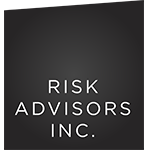A multi-strategy hedge fund manager with $3.2 billion in assets under management with three distinct investment strategies – global macro, US equity long/short, and high-yield corporate debt – felt their existing end-of-day risk reporting was inadequate to accurately monitor their risk exposures. The firm’s portfolio included positions in multiple asset classes, which in-turn resulted in a broad range of exposures including equity, interest rate, credit, currency, and commodity. Recent market volatility had exposed the limits of end-of-day reporting as a risk management discipline. The client’s mandate was to transform its existing end-of-day risk reporting process into a proactive intra-day risk management program. The idea was that monitoring risks in close to real-time would allow the firm to proactively hedge its exposures or unwind positions and to reduce risk as necessary.
Solution:
- Reviewed and tested valuation models for all traded asset classes and ensure accuracy in an intra-day setting, including a review of market data sources, valuation models, and calculation infrastructure.
- Selected portfolio level summary risk measures for each investment strategy and identified appropriate measures to aggregate risk across the three investment strategies.
- Advised on real-time market risk management information technology system choices and assisted vendor selection process.
- Developed and performed scenario analysis tests for a range of market conditions to test responsiveness of the portfolio.
- Implemented an exposure monitoring and limit-tracking program with an organizational process to manage exceptions and reduce risk.
- Created explanatory materials to share features of new risk management process with investors and regulators.
Benefits:
- Transitioned from an end-of-day risk reporting process to a real-time risk management program allowing the risk manager to hedge and, if necessary, unwind risks throughout the trading day.
- Developed a comprehensive market risk strategy that included data, information systems, risk measures, a hedging program, and organizational structure necessary to track and manage market risk in real-time.
- Consolidated risk data eased the regulatory reporting process for Form PF risk sections (i.e. Section 2b).
- Investors and prospective investors recognized the change to a dynamic intra-day risk management system as a major improvement in the firm’s operating environment.
